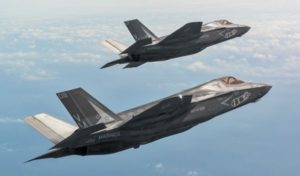Melbourne, Florida, January 29, 2024 – Eve Air Mobility (NYSE: EVEX) has named four additional suppliers for its electric vertical takeoff and landing (eVTOL) aircraft. Thales will supply a proven air data solution, comprising sensors and a computer while Honeywell (NYSE: HON) will supply guidance, navigation and external lighting for the aircraft. RECARO Aircraft Seating will supply the eVTOL’s seats and FACC will supply the horizontal and vertical tail including the rudder and elevator.
Honeywell will supply guidance and navigation products including magnetometers, GPS-aided attitude & heading reference systems, and inertial reference systems built upon decades of engineering and manufacturing experience. These systems will relay and aid the pilots and other onboard systems to ensure safe and efficient flight. The company will also supply external lighting for the aircraft.
Thales will supply a proven air data solution, comprising sensors and computer, which gather critical data such as airspeed, altitude and environmental conditions. The solution then relays the information to pilots and onboard systems to ensure safe and efficient flight in all weather conditions.
RECARO Aircraft Seating, a global supplier of premium aircraft seats for airlines, OEMs and eVTOL aircraft, was selected to design, certify and produce the four passenger seats and one pilot seat for the aircraft. RECARO is widely recognized for product innovation, award-winning customer service and commitment to reliability, efficiency and sustainable practices.
FACC was selected to lead the development and production of the eVTOL’s horizontal and vertical tail including its rudder, elevator and the aircraft’s aileron. FACC is recognized for its production of lightweight components relying on innovative manufacturing techniques and technology.
These new suppliers are in addition to Garmin (NYSE: GRMN), Liebherr Aerospace and Intergalactic that were announced in October and Nidec Aerospace LLC, a joint venture between Japan’s Nidec Corporation and Brazil’s Embraer SA (B3: EMBR3), BAE Systems PLC (London: BAES) and DUC Hélices Propellers which were announced at the Paris Air Show this past summer.
Forward-Looking Statements
This press release may contains forward-looking statements within the meaning of the Private Securities Litigation Reform Act of 1995, including expected delivery dates. Such statements are based on current expectations and projections about our future results, prospects and opportunities and are not guarantees of future performance. Such statements will not be updated unless required by law. Actual results and performance may differ materially from those expressed or forecasted in forward-looking statements due to a number of factors, including those discussed in our filings with the Securities and Exchange Commission.



